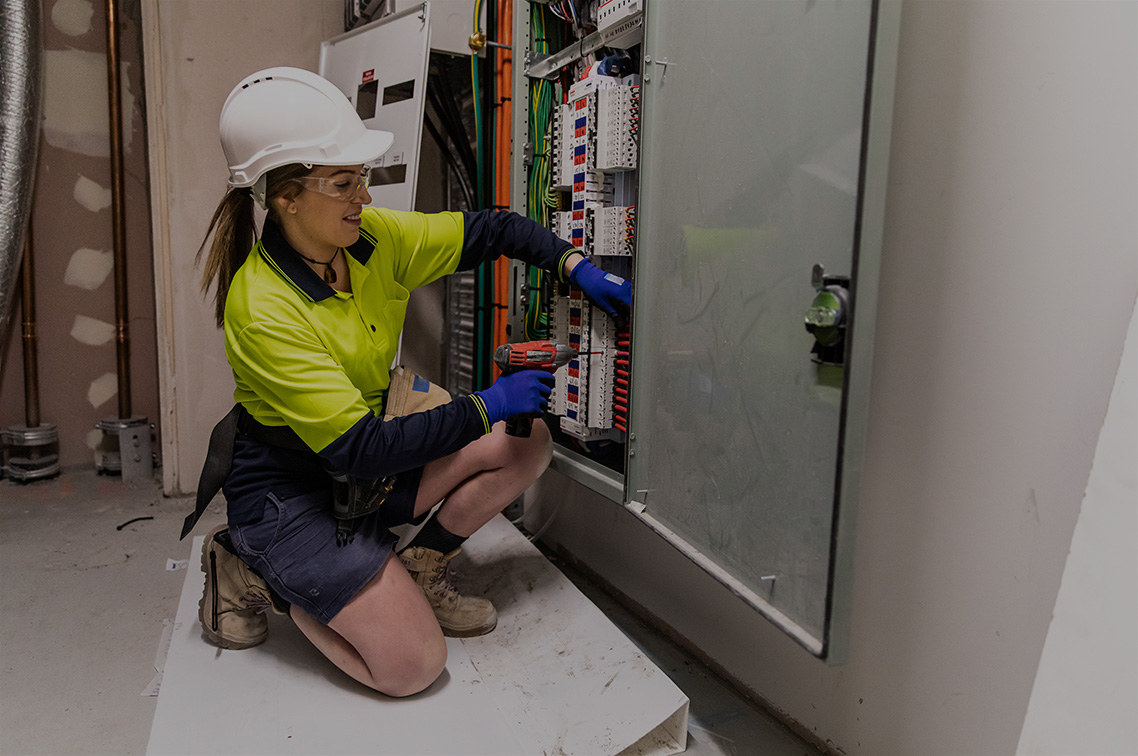Tradeswomen Australia is building a better future for women tradies, one scholarship at a time

Through the Pathways to Trades Scholarships, Tradeswomen Australia (TWA) Community Foundation is ensuring that more women get trades jobs, remain in the industry, thrive in the workplace and lead the way for those who follow.
Australia faces one huge economic challenge on two, intertwined fronts: housing and gender equity.
Firstly, there’s an overwhelming shortage of skilled tradespeople to meet the nation’s future housing and infrastructure demand. Master Builders Australia expects that the construction sector alone will need an extra 500,000 workers by 2029.
Yet, according to Tradeswomen Australia (TWA), fewer than 5% of qualified tradespeople are currently women – a figure that has barely shifted since World War Two.
“When women thrive in trades, it strengthens the entire workforce and benefits the whole community,” says Clea Smith, CEO of TWA. “Diverse workplaces also perform better financially and problem-solve more effectively. So TWA exists to increase the number of women who want to, can, and do thrive in skilled trades.”
TWA aims to create the right kind of incentives and environments to overcome obstacles related to the recruitment and retention of women in the trades. “Women are leaving the industry at a faster rate than they’re entering.”
This is not due to a lack of skill but because of financial stress, isolation, systemic sexism, perpetuating social stereotypes, and poor organisational support.
“The trades industry was built many moons ago by men for men, in an era run by men. It hasn’t shifted at a fast enough rate to keep up with social changes or to create a practical environment, across the board, that is suitable for the majority of women to work in. Women entering the trades need a workplace that also works for them – one where they can succeed and thrive.”
That’s where TWA’s Pathways to Trades – Supporting Women to Succeed Scholarships comes in. Each grant – $2,500 for current apprentices or $500 for pre-apprentices – can mean the difference between completing a qualification or walking away.
“A few thousand dollars for tools, food, childcare, or fuel can change everything for a woman.”
Since the program began in 2023, demand for scholarships has surged: from 184 applicants in the first year to more than 400 in 2025 for just 25 scholarships. TWA data indicates that the wider industry loses seven out of ten female apprentices before completion. However these scholarship recipients have achieved 100% retention.
Scholarships can change lives
The scholarships are made possible by philanthropic, corporate, and union partners. In 2025, Phyllis Connor Memorial Trust, managed by Equity Trustees, funded 10 scholarships which will be awarded in early 2026.
“We are extremely thankful to the Phyllis Connor Memorial Trust for leading the way. Their funding ensures more women finish their apprenticeships and build secure, well-paid careers.”
For the recipients, scholarships can be lifechanging financially and act as a source of inspiration. Clea recalls how one scholarship recipient explained the situation she was facing: “There were weeks I had to choose between buying tools or paying rent,” writes the scholarship recipient in a letter to Clea. “This scholarship meant I could do both. It gave me the confidence to keep going. Now, I know I’ll finish my apprenticeship and one day mentor the next young woman coming through.”
Clea says the scholarship recipient’s words demonstrate just how the scholarship program can achieve far-reaching change.
“Retention is the best recruitment tool,” says Clea. “If women can stay in the trades, they become the role models who attract others.
“When we back women to succeed, we don’t just change one life: we change workplaces, industries and communities. That’s the future we’re working towards.”
"A few thousand dollars for tools, food, childcare, or fuel can change everything for a woman.”



